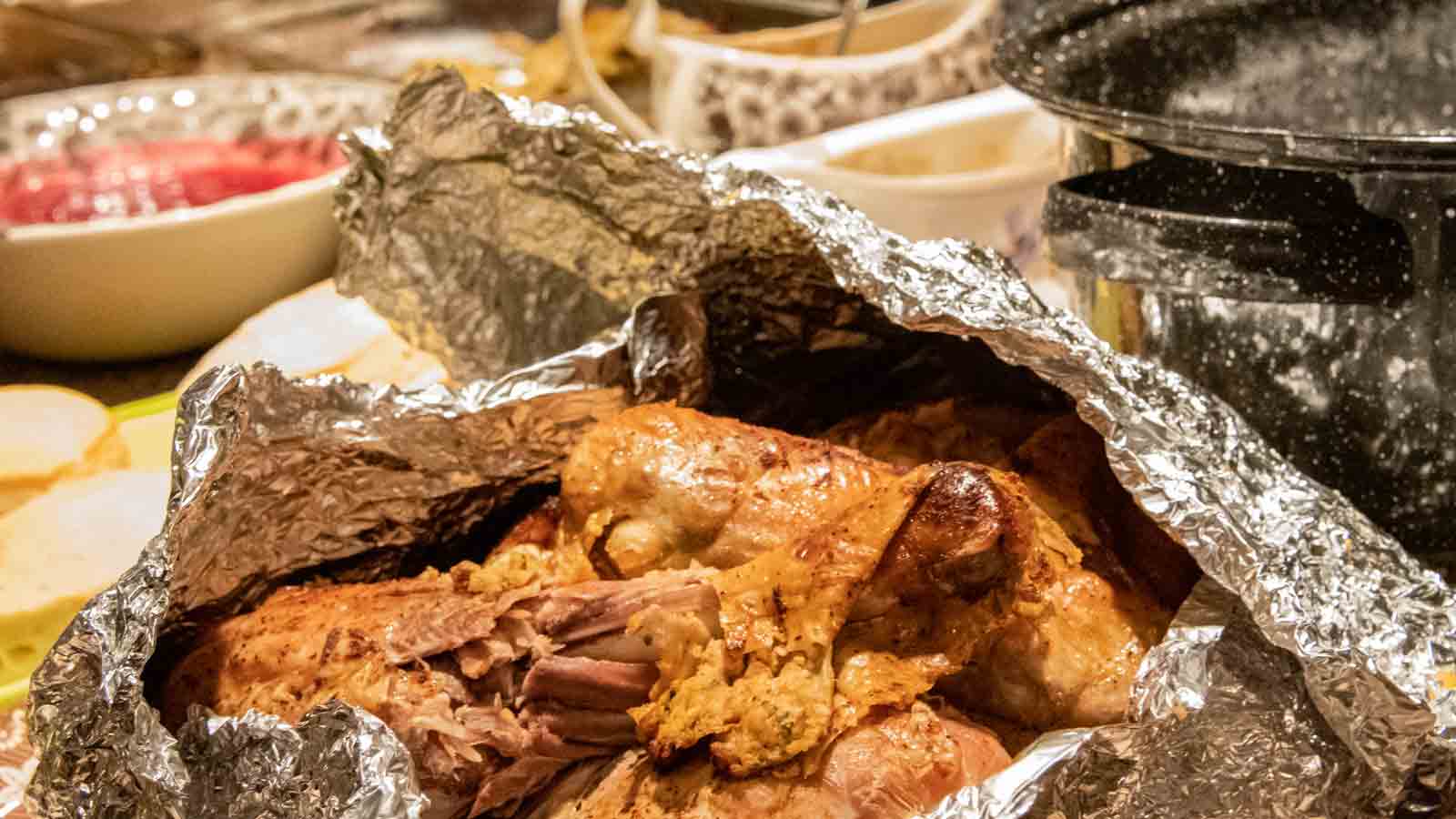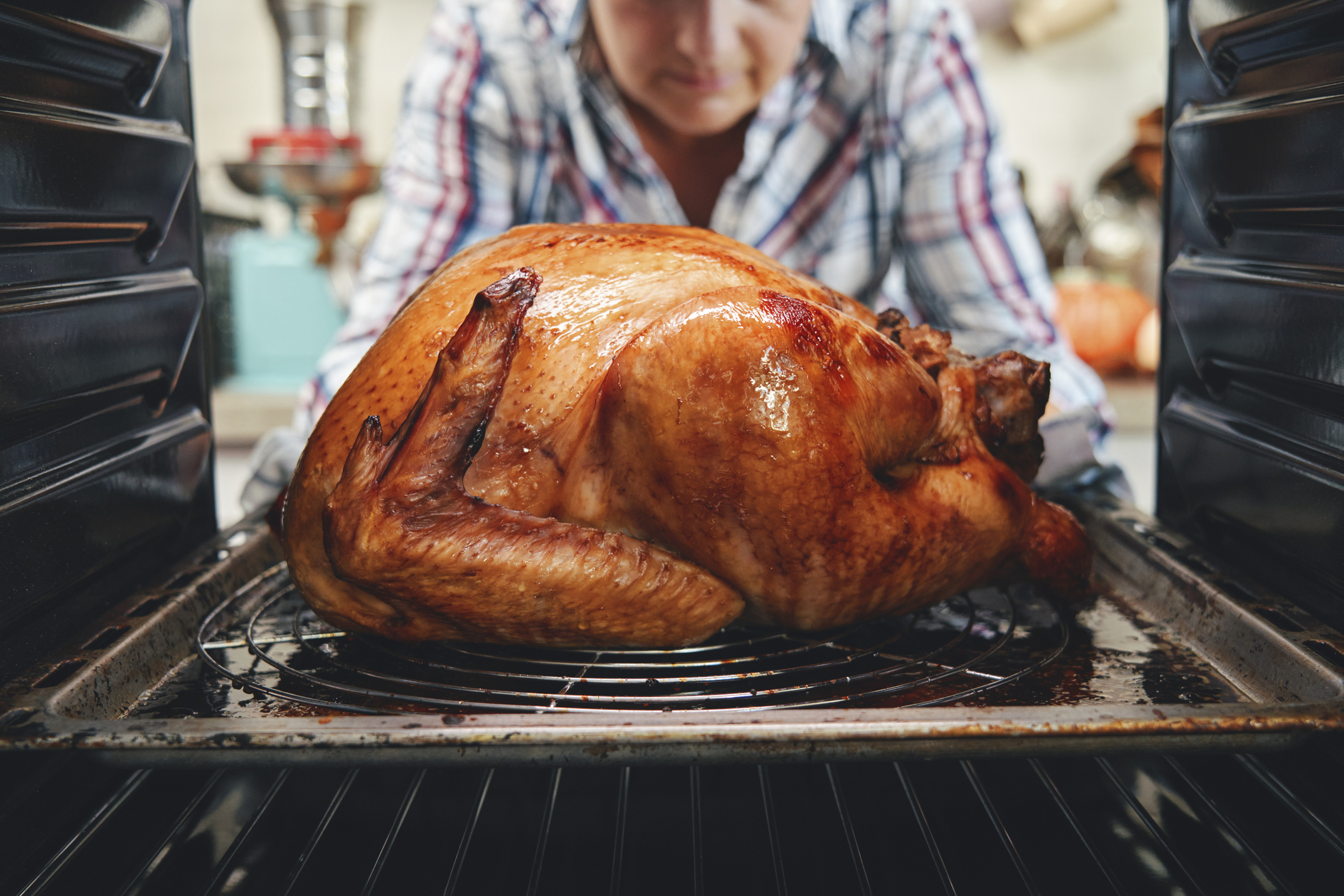Turkey is a bird native to the United States and many of us will make it the star attraction at our Thanksgiving table this week. In fact, Benjamin Franklin suggested that the wild turkey — not the bald eagle — was a better symbol for the national bird of the United States!
With so many people cooking up the bird this week, you may find yourself wondering: Is turkey healthy?
Good news for turkey lovers: It will likely be one of the healthiest dishes at your gathering. Turkey, a type of poultry, boasts an abundance of vitamins and minerals, making it an ideal, nutrient-dense form of high-quality protein. Learn the benefits of turkey, the difference between white meat and dark meat, and recipes to put those leftovers to good use.
Get top local stories in DFW delivered to you every morning. Sign up for NBC DFW's News Headlines newsletter.
Turkey nutrition facts:
A 3-ounce serving of roasted turkey (the meat and skin) has:
- 161 Calories
- 24.3 grams protein
- 6.28 grams fat
- 8.1 grams niacin
- 1 mg iron
- 2.1 mg zinc
- 25.3 mg selenium
Turkey benefits
One of the most impressive parts of the turkey is the high content of protein it provides. The protein found in turkey and other forms of poultry is considered to be of high biological value. This means that turkey contains all the amino acids necessary for human health.
Studies show that protein consumption may help with bone health and muscle integrity. It can also create satiety, meaning you’re more likely to feel full after eating it. The protein in turkey can be particularly beneficial to older individuals as studies indicate that doubling protein in the later stages of life may help build and preserve muscle.
Some other benefits of eating turkey include:
- It can help with diabetes management. Eating turkey could also contribute to better management of diabetes. The protein in turkey may play a role in improving body composition and blood-sugar control. A 2023 randomized trial found that both high protein and normal protein diets helped individuals with type 2 diabetes in improving glucose control and weight loss.
- It may aid in weight loss. Studies show that consuming poultry may facilitate weight loss and weight management due to its high protein content.
- It can reduce the risk of heart disease. A study published in the journal Circulation found that swapping red and red processed meats for healthier protein sources helped lower the risk of heart disease. Consuming poultry reduced the risk by 19%. Additionally, a nutrient found in dark meat turkey, called taurine, has been found in studies to help reduce the risk of heart disease.
- It may help reduce the risk of certain cancers: A further study found similar benefits in reducing the risk of breast cancer when swapping poultry for red meat. Turkey also contains a high content of selenium, a trace element associated with lower risks for certain cancers. Finally, studies have associated white meat (such as turkey breast) with being moderately protective or neutral regarding cancer risk.
- It's good for the planet. Finally, a new study indicates that swapping poultry for other animal-based proteins may be better for the planet.
More nutritional information on everyday foods
White meat vs. dark meat turkey
The Thanksgiving turkey at the center of your table contains two main components: dark meat and light meat.
A 3-ounce serving of roasted turkey breast contains about 1.8 grams of fat and 125 calories; 3 ounces of roasted dark meat contains 5.1 grams of fat and 147 calories.
Both white and dark meat versions of turkey contain B vitamins, iron, choline and protein, but there are slight variations in their macronutrient composition.
- Dark meat turkey contains much more fat than white meat turkey (comprising limited amounts of saturated fats, with the prevailing fats being monounsaturated and polyunsaturated). The skin has the most fat.
- Dark meat also tends to add more moisture to the cooking process than white meat versions.
- White meat turkey has fewer calories and slightly more protein, especially in the turkey breast.
- White meat protein sources also lack moisture due to a lack of fat.
Turkey risks: nitrates and salmonella
Other than not being a suitable choice for vegan individuals, the way turkey is prepared and the form it comes in are its most significant drawbacks.
For example, turkey deli meat may contain high amounts of sodium and preservatives such as nitrates — the more processed the turkey product, the less nutrient density it might have. Additionally, making your turkey a deep-fried version may increase components linked to certain cancers and cardiovascular disease risk.
Finally, since raw turkey carries the risk of salmonella and other germs, not handling or preparing raw turkey safely could make you sick. Storing, thawing, cooking, and serving your turkey according to food safety guidelines will help reduce the risk of food-borne illness. When cooking turkey and other poultry, cooking to 165 degrees Fahrenheit and serving it immediately will help reduce this risk.
Does turkey make you sleepy?
The notion that your Thanksgiving meal may make you sleepy is linked to tryptophan, an amino acid in turkey. However, experts note that this is a myth. Many foods contain tryptophan, and the sleepiness you experience is most likely to be caused by carbohydrates or alcohol that may be consumed on Thanksgiving day.
Turkey recipes
The vision of the beautiful Thanksgiving table is often one of a whole bird on a platter. However, turkey is also popular in ground or sliced varieties, making it easy to enjoy all year long. Turkey may be the main ingredient in turkey burgers, turkey chili and turkey tacos, and leftover turkey makes for great recipes after the big feast. Here are other ways to enjoy turkey.
This article first appeared on TODAY.com. More from TODAY:



